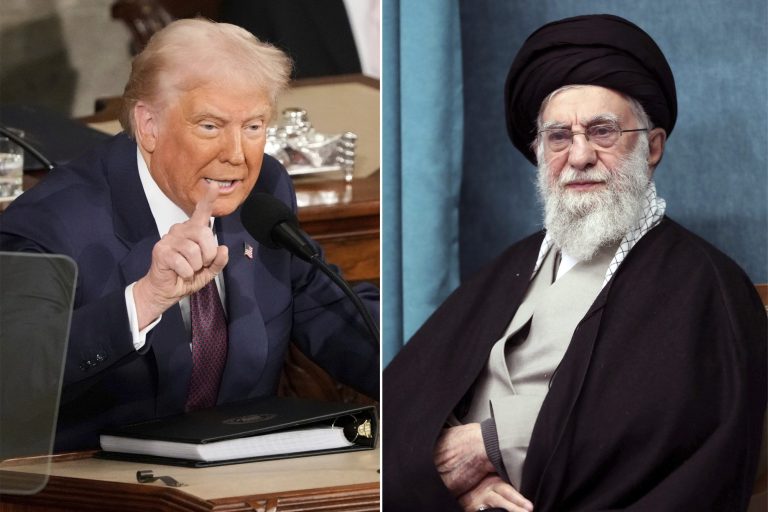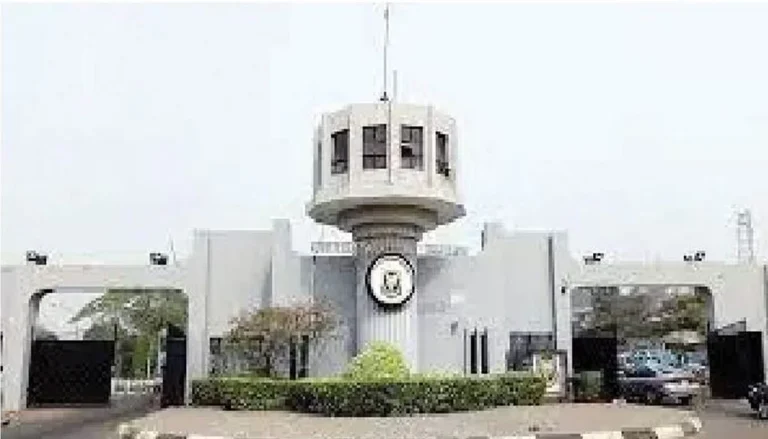
One week after the inauguration of the 10th National Assembly, lawmakers have begun jockeying for the chairmanship and membership of key standing committees in both the Senate and the House.
According to Sunday PUNCH, committees that oversee federal ministries, departments, and agencies with enormous influence and budgets are considered “juicy” by lawmakers.
The most desirable committee assignments are frequently reserved for key members of the dormant party, in this case the All Progressives Congress, and those who are loyal to the presiding officers.
These committees include, among others, Appropriations, Finance, Public Accounts, Defence (Army, Navy, and Air Force), Police Affairs, National Security and Intelligence, Customs and Excise, and Ports and Harbours.
The only committee recognized by the Constitution of 1999 is the Committee on Public Accounts, whose chairmanship is reserved for the opposition.
The committee’s authority derives from its oversight of the office of the Auditor-General of the Federation, which audits the accounts of all federal ministries, departments, and agencies. After interrogating the heads of the MDAs, the committee has the authority to uphold audit requests or recommend their annulment.
The committee, which exists in both the Senate and the House, is a line item in the National Assembly’s annual budget, meaning it receives funding from a source distinct from the Senate and the House.
The Committee on Appropriations oversees the annual budget of the Federal Government, giving it control over the government and all its MDAs.
According to sources, a number of legislators have been lobbying the new leaders of both chambers for committee positions.
On Tuesday, the Senate and House presiding officers were elected. They were Godswill Akpabio, President of the Senate; Jibrin Barau, Vice President of the Senate; Tajudeen Abbas, Speaker of the House; and Benjamin Kalu, Deputy Speaker.
The subsequent step is the selection or election of the principal officers, who are the chamber’s majority and minority caucus leaders.
They consist of the Majority Leader, the Deputy Majority Leader, the Majority Chief Whip, the Deputy Majority Chief Whip, the Minority Leader, the Deputy Minority Leader, the Minority Chief Whip, and the Deputy Minority Chief Whip.
The 9th Senate had a total of 69 committees with oversight responsibilities over various government agencies and quasi-governmental organizations.
The most coveted committee is the Appropriations Committee, followed by the Oil and Gas Committee.
A source revealed that Senator Adeola Solomon (APC, Ogun West) was being positioned for the position of chairman of the Appropriations Committee in the camp of Senate President Godswill Akpabio, while Senator Sani Musa (Niger East) emerged in the camp of Senator Abdulaziz Yari (APC, Zamfara West), who lost to Akpabio.
Senator Jarighe Jarigbe (PDP, Cross River North), a protégé of Akpabio, is rumored to be eyeing either the upstream or downstream oil and gas committees.
Senator Solomon’s Chief Press Secretary, Kayode Odunaro, stated that these were merely rumors, as was common with presiding officers.
He noted that the presiding officers were still attempting to settle down and attend to other matters, including the welfare of senators, as many of them lacked offices.
Odunaro stated, “Many of these rumors are unfounded; the principal officers were recently elected and are still settling into their positions.
“If you recall, this is how a great deal of information about the Senate President and Deputy Senate President seats circulated; therefore, none of this is new.”
He remarked, however, that if his boss was penciled in for such a prestigious appropriations committee, it must be because of his legislative and professional merits.
Odunaro added, “Should his name be written down for the committee, it would not be surprising, as he is eminently qualified for the position.
“He is qualified in terms of legislative capacity, as well as the professional experience and intellectual acuity required for such a demanding and tactical committee.”
Several members of both chambers who were unsuccessful in their bids to become chief officers are now seeking committee appointments.
Abbas faces the dilemma of compensating multiple members and groups in the 360-member House, where he received approximately 98% of the vote across party lines.
Except for the outgoing Deputy Speaker, Ahmed Wase, and Sani Jaji, all other candidates for the position of speaker abdicated for him.
All seven members of the minority caucus of the opposition parties in the 10th House voted for the APC candidate.
Peoples Democratic Party, Labour Party, New Nigeria Peoples Party, All Progressives Grand Alliance, Social Democratic Party, African Democratic Congress, and Youth Progressive Party are the seven minority parties.
PDP has 117 members, LP has 35, NNPP has 19, APGA has five, SDP has two, ADC has two, and YPP has one, for a total of 181 opposition members. There are 178 APC members.
A ranking member of the House, Oluwole Oke (PDP, Osun), who is the former chairman of the House Committee on Public Accounts and who has withdrawn from the minority caucus leadership race, noted that Abbas had the authority to appoint committee chairmen.
You do not consider any position. Oke stated that committee members and chairs are appointed at the pleasure of the Speaker.
The fifth-timer responded to a question about the competition for committee chairmanships by stating, “It is expected.”
Gbajabiamila’s men
Femi Gbajabiamila, the previous Speaker of the House, collapsed his structure in the chamber, allowing Abbas to emerge as his successor.
Gbajabiamila’s men had mobilized support for Abbas, who was nominated by the outgoing Speaker and anointed by the APC and President Bola Tinubu, under the auspices of the Joint Task -10th Assembly.
Multiple leaders of the APC-opposition alliance may retain their positions in the 9th House, according to strong indications.
Reportedly, the Co-Chairman of the Joint Task, Kingsley Chinda (PDP, Rivers), has been selected as the House Minority Leader.
Ndudi Elumelu, who was aligned with the Gbajabiamila-led APC camp, defeated Chinda in his bid for the 9th House seat.
According to sources within the Joint Task, the outgoing chairmen of the Committee on House Services, Olawale Raji, the Committee on Defence, Babajimi Benson, the Committee on Police Affairs, Bella Kumo, and the Niger Delta Development Commission, Olubunmi Tunji-Ojo, could retain their positions.
Under the condition of anonymity, one of them told our correspondent, “People say we’ve done well.”
A second leader of the Joint Task stated, “Abbas is aware of my contributions. I am a co-founder of his campaign.”
“Well, I don’t know. The possibility exists.”
Committees can decrease
A member of the APC with close ties to Gbajabiamila noted that Abbas may be forced to reduce the number of House committees.
In an effort to compensate stakeholders for his 2019 victory, Gbajabiamila created more committees and allowed first-timers and opposition members to become committee chairs.
This time, the lawmaker stated, “There is no need to increase the number of committees; rather, the committees should be consolidated for greater efficiency.” The oversight of a ministry by two or three committees is inefficient.
When asked if the Speaker was considering harmonisation rather than expansion of the committees, the lawmaker responded, “I have not said so, but I believe it is preferable, so that when there is a joint sitting of the committees between the Senate and the House, there will not be one senator with two or three chairmen from the House. It is a matter that will be investigated.”
According to sources in the House, Abbas had to “settle” the aspirants who stepped down for him, particularly those from the G-7.
Apparently, the disgruntled candidates presented Tinubu with their demands during the President’s negotiations with them at the Presidential Villa. In addition, it was learned that some of them could be given positions outside of the National Assembly.
“Discussions regarding those who resigned were held outside the National Assembly. They are excellent partygoers, according to a source in the APC caucus.
When asked if the ministerial position allegedly offered to Wase was still available after his defeat of Abbas, the lawmaker replied, “Your guess is as good as mine.”
However, according to the sources, the G-7 members, particularly the former chairman of the House Appropriations Committee, Aliyu Betara, and his counterpart on the Navy, Yusuf Gagdi, may retain their current positions.
James Faleke, the outgoing chairman of the House Committee on Finance and a known ally of the president and Gbajabiamila, was reportedly eyeing a position on the appropriations committee, according to sources.
A source, noting that Abbas would be cognizant of the committee’s chairmanship, stated, “For appropriations, you will mention Faleke, Betara, and a few others, particularly Abubakar Bichi.”
According to the source, Bichi was one of the major contributors to Abbas’ speakership campaign.
Olawale Raji (APC, Lagos), the Deputy Chairman (South) of the Joint Task, stated that Abbas would “do it by the grace of God,” adding, “It is an inclusive administration that will run in accordance with the election results. It is a reflection of Abbas’s general acceptability, which places a great deal of responsibility on his shoulders. He will be able to accommodate everyone.”
Another important leader of the Joint Task, Babajimi Benson (APC, Lagos), stated that appointments were made at the Speaker’s direction and added, “I am willing to serve in any capacity.”
One week after the inauguration of the 10th National Assembly, lawmakers have begun jockeying for the chairmanship and membership of key standing committees in both the Senate and the House.
According to Sunday PUNCH, committees that oversee federal ministries, departments, and agencies with enormous influence and budgets are considered “juicy” by lawmakers.
The most desirable committee assignments are frequently reserved for key members of the dormant party, in this case the All Progressives Congress, and those who are loyal to the presiding officers.
These committees include, among others, Appropriations, Finance, Public Accounts, Defence (Army, Navy, and Air Force), Police Affairs, National Security and Intelligence, Customs and Excise, and Ports and Harbours.
The only committee recognized by the Constitution of 1999 is the Committee on Public Accounts, whose chairmanship is reserved for the opposition.
The committee’s authority derives from its oversight of the office of the Auditor-General of the Federation, which audits the accounts of all federal ministries, departments, and agencies. After interrogating the heads of the MDAs, the committee has the authority to uphold audit requests or recommend their annulment.
The committee, which exists in both the Senate and the House, is a line item in the National Assembly’s annual budget, meaning it receives funding from a source distinct from the Senate and the House.
The Committee on Appropriations oversees the annual budget of the Federal Government, giving it control over the government and all its MDAs.
According to sources, a number of legislators have been lobbying the new leaders of both chambers for committee positions.
On Tuesday, the Senate and House presiding officers were elected. They were Godswill Akpabio, President of the Senate; Jibrin Barau, Vice President of the Senate; Tajudeen Abbas, Speaker of the House; and Benjamin Kalu, Deputy Speaker.
The subsequent step is the selection or election of the principal officers, who are the chamber’s majority and minority caucus leaders.
They consist of the Majority Leader, the Deputy Majority Leader, the Majority Chief Whip, the Deputy Majority Chief Whip, the Minority Leader, the Deputy Minority Leader, the Minority Chief Whip, and the Deputy Minority Chief Whip.
The 9th Senate had a total of 69 committees with oversight responsibilities over various government agencies and quasi-governmental organizations.
The most coveted committee is the Appropriations Committee, followed by the Oil and Gas Committee.
A source revealed that Senator Adeola Solomon (APC, Ogun West) was being positioned for the position of chairman of the Appropriations Committee in the camp of Senate President Godswill Akpabio, while Senator Sani Musa (Niger East) emerged in the camp of Senator Abdulaziz Yari (APC, Zamfara West), who lost to Akpabio.
Senator Jarighe Jarigbe (PDP, Cross River North), a protégé of Akpabio, is rumored to be eyeing either the upstream or downstream oil and gas committees.
Senator Solomon’s Chief Press Secretary, Kayode Odunaro, stated that these were merely rumors, as was common with presiding officers.
He noted that the presiding officers were still attempting to settle down and attend to other matters, including the welfare of senators, as many of them lacked offices.
Odunaro stated, “Many of these rumors are unfounded; the principal officers were recently elected and are still settling into their positions.
“If you recall, this is how a great deal of information about the Senate President and Deputy Senate President seats circulated; therefore, none of this is new.”
He remarked, however, that if his boss was penciled in for such a prestigious appropriations committee, it must be because of his legislative and professional merits.
Odunaro added, “Should his name be written down for the committee, it would not be surprising, as he is eminently qualified for the position.
“He is qualified in terms of legislative capacity, as well as the professional experience and intellectual acuity required for such a demanding and tactical committee.”
Several members of both chambers who were unsuccessful in their bids to become chief officers are now seeking committee appointments.
Abbas faces the dilemma of compensating multiple members and groups in the 360-member House, where he received approximately 98% of the vote across party lines.
Except for the outgoing Deputy Speaker, Ahmed Wase, and Sani Jaji, all other candidates for the position of speaker abdicated for him.
All seven members of the minority caucus of the opposition parties in the 10th House voted for the APC candidate.
Peoples Democratic Party, Labour Party, New Nigeria Peoples Party, All Progressives Grand Alliance, Social Democratic Party, African Democratic Congress, and Youth Progressive Party are the seven minority parties.
PDP has 117 members, LP has 35, NNPP has 19, APGA has five, SDP has two, ADC has two, and YPP has one, for a total of 181 opposition members. There are 178 APC members.
A ranking member of the House, Oluwole Oke (PDP, Osun), who is the former chairman of the House Committee on Public Accounts and who has withdrawn from the minority caucus leadership race, noted that Abbas had the authority to appoint committee chairmen.
You do not consider any position. Oke stated that committee members and chairs are appointed at the pleasure of the Speaker.
The fifth-timer responded to a question about the competition for committee chairmanships by stating, “It is expected.”
Gbajabiamila’s men
Femi Gbajabiamila, the previous Speaker of the House, collapsed his structure in the chamber, allowing Abbas to emerge as his successor.
Gbajabiamila’s men had mobilized support for Abbas, who was nominated by the outgoing Speaker and anointed by the APC and President Bola Tinubu, under the auspices of the Joint Task -10th Assembly.
Multiple leaders of the APC-opposition alliance may retain their positions in the 9th House, according to strong indications.
Reportedly, the Co-Chairman of the Joint Task, Kingsley Chinda (PDP, Rivers), has been selected as the House Minority Leader.
Ndudi Elumelu, who was aligned with the Gbajabiamila-led APC camp, defeated Chinda in his bid for the 9th House seat.
According to sources within the Joint Task, the outgoing chairmen of the Committee on House Services, Olawale Raji, the Committee on Defence, Babajimi Benson, the Committee on Police Affairs, Bella Kumo, and the Niger Delta Development Commission, Olubunmi Tunji-Ojo, could retain their positions.
Under the condition of anonymity, one of them told our correspondent, “People say we’ve done well.”
A second leader of the Joint Task stated, “Abbas is aware of my contributions. I am a co-founder of his campaign.”
“Well, I don’t know. The possibility exists.”
Committees can decrease
A member of the APC with close ties to Gbajabiamila noted that Abbas may be forced to reduce the number of House committees.
In an effort to compensate stakeholders for his 2019 victory, Gbajabiamila created more committees and allowed first-timers and opposition members to become committee chairs.
This time, the lawmaker stated, “There is no need to increase the number of committees; rather, the committees should be consolidated for greater efficiency.” The oversight of a ministry by two or three committees is inefficient.
When asked if the Speaker was considering harmonisation rather than expansion of the committees, the lawmaker responded, “I have not said so, but I believe it is preferable, so that when there is a joint sitting of the committees between the Senate and the House, there will not be one senator with two or three chairmen from the House. It is a matter that will be investigated.”
According to sources in the House, Abbas had to “settle” the aspirants who stepped down for him, particularly those from the G-7.
Apparently, the disgruntled candidates presented Tinubu with their demands during the President’s negotiations with them at the Presidential Villa. In addition, it was learned that some of them could be given positions outside of the National Assembly.
“Discussions regarding those who resigned were held outside the National Assembly. They are excellent partygoers, according to a source in the APC caucus.
When asked if the ministerial position allegedly offered to Wase was still available after his defeat of Abbas, the lawmaker replied, “Your guess is as good as mine.”
However, according to the sources, the G-7 members, particularly the former chairman of the House Appropriations Committee, Aliyu Betara, and his counterpart on the Navy, Yusuf Gagdi, may retain their current positions.
James Faleke, the outgoing chairman of the House Committee on Finance and a known ally of the president and Gbajabiamila, was reportedly eyeing a position on the appropriations committee, according to sources.
A source, noting that Abbas would be cognizant of the committee’s chairmanship, stated, “For appropriations, you will mention Faleke, Betara, and a few others, particularly Abubakar Bichi.”
According to the source, Bichi was one of the major contributors to Abbas’ speakership campaign.
Olawale Raji (APC, Lagos), the Deputy Chairman (South) of the Joint Task, stated that Abbas would “do it by the grace of God,” adding, “It is an inclusive administration that will run in accordance with the election results. It is a reflection of Abbas’s general acceptability, which places a great deal of responsibility on his shoulders. He will be able to accommodate everyone.”
Another important leader of the Joint Task, Babajimi Benson (APC, Lagos), stated that appointments were made at the Speaker’s direction and added, “I am willing to serve in any capacity.”







